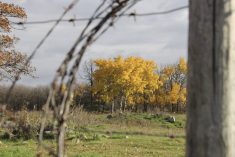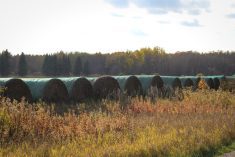Winnipeg | Reuters — Powerful storm Fiona slammed into Canada’s eastern fishing and farm industries over the weekend, smashing wharves, food processing plants and barns that will take months to repair.
One of the worst storms Canada has ever faced left more than one-third of customers in Nova Scotia without power, swept homes into the sea and left at least one person dead.
Fishing is a key industry in Canada’s Atlantic provinces, which produce some of the world’s largest lobster exports.
Read Also

U.S. livestock: Feeder cattle hit contract highs on tight supply
Chicago | Reuters – All Chicago Mercantile Exchange feeder cattle futures and most live cattle futures hit contract highs on…
Fiona destroyed some harbours on Prince Edward Island and scattered lobster traps for miles, leaving a long clean-up ahead, said Allan MacQuarrie, a director of the P.E.I. Fishermen’s Association.
“I’m scared to know what it’s going to look like, to be honest with you,” said MacQuarrie, who was cleaning up toppled trees at his home and had not yet checked his own crab traps.
“I’ll know tomorrow and you’ll hear me swearing in Saskatchewan.”
Osborne Burke, general manager of the Victoria Co-op Fisheries in Neils Harbour, N.S., told news outlet CBC that the plant suffered “horrendous” damage, and several 40-foot sea containers full of frozen fish were “thrown around like dominoes.”
He said no one was seriously hurt, but repairs will cost more than $1 million.
Canada’s lobster industry was spared worse damage because fishing is minimal at this time of year, said Geoff Irvine, executive director of the Lobster Council of Canada industry group. Fishers are planning to seek government approval to extend the season in certain areas to make up for lost time, he said.
National fishing and seafood accounted for $7.6 billion in Canadian gross domestic product in 2018, according to a 2021 government report.
Farm damage
Many P.E.I. dairy farmers lost power, shutting down milking systems that run on electricity, said Donald Killorn, executive director of P.E.I. Federation of Agriculture.
The storm disrupted early harvesting of potatoes and other crops, he said. P.E.I., the smallest province, produced one-fifth of Canada’s potatoes last year, according to Statistics Canada. Much of its crop is exported to the United States.
“We see huge destruction in our barns and our storage facilities,” Killorn said. “Damage to infrastructure is significant, it’s widespread and it’s catastrophic.”
— Reporting for Reuters by Rod Nickel in Winnipeg.
















